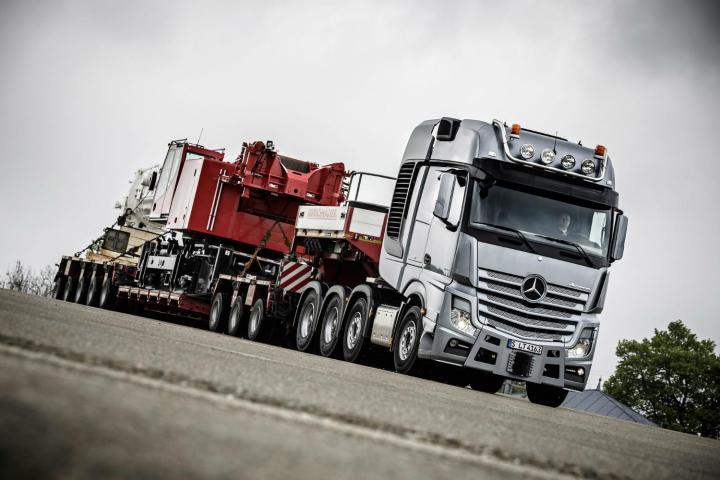
As per initial reports, trials of these driverless trucks are slated to happen on the M6 in Cumbria toward the latter half of 2016. But don’t worry — you won’t see a whole fleet of autonomous semis just rolling down the freeway. Rather, they’ll be led by a driver-operated head truck. But it’ll still cut quite the imposing sight — convoys are expected to be up to 10 trucks strong, and will be “monitored by laser sensors and infrared cameras.”
“The technology behind this test enables savings not only in the cost of operating the vehicles, but also through more efficient fleet management and mechanical diagnostics,” Jonathan Hewitt, executive vice president responsible for strategy and marketing at Octo Telematics, told Newsweek via email. “A move toward driverless vehicle technology is also expected to reduce congestion on U.K. motorways through the use of navigational data.”
Of course, not everyone is so excited about the technological innovation. After all, now that self-driving cars have caused their first accident, concerns over safety and efficiency are at an all-time high. In discussing the new project, Paul Watters, head of transport policy at the Automobile Association, noted that “road users will naturally have concerns about it,” further commenting, “If the lorries are following each other closely, it might be hard to spot the road signs on the near side of the motorway.”
Certainly, a number of things would need to change if entire fleets of self-driving trucks were to become frequent occurrences in the U.K. “Putting it into practice would mean a complete redesign of the signage system,” Watters added. “It would also make exit and entry very difficult on motorways, so the convoys would have to separate at every junction.”
That said, British officials seem confident that these tests will open up new possibilities in the transportation arena. A spokesman for the Department for Transport said: “New technology has the potential to bring major improvements to journeys and the U.K. is in a unique position to lead the way for the testing of connected and driverless vehicles.”


